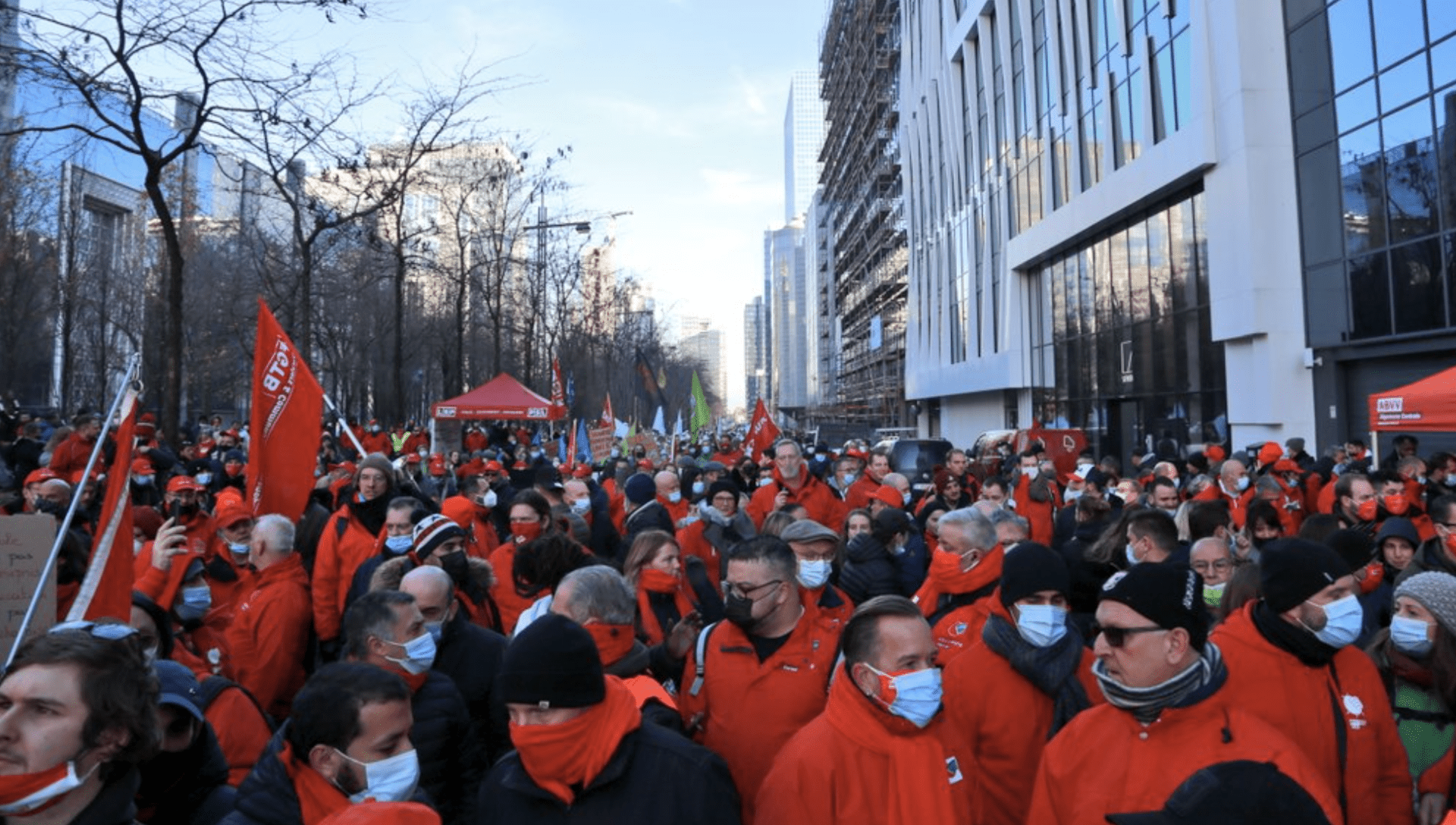Countries where workers unions are growing weaker are seeing inequality rise, new research from the European trade union federation UNI Europa shows. But Belgium stands out as an example of a country in which unions and collective bargaining remain strong.
Policies in many European countries have weakened collective bargaining which has had the knock-on effect of concentrating wealth, UNI Europa says in a report titled "The planned obsolescence of Social Europe."
“We know already from other research that collective bargaining leads to lower inequality, but now we can see that the moment collective bargaining coverage goes down, that coincides with inequality going up,” director of research and policy Stan De Spiegelaere told The Brussels Times.
De Spiegelaere, a guest professor at the University of Ghent, did note that not every European country was seeing rights for workers eroded.
“In Belgium, we have a collective bargaining coverage rate of nearly 100%, and it’s stayed that way. This is largely because our collective agreements are made on the sectoral level and are made generally applicable.”
Sector-wide negotiations, rather than individual companies
In Belgium, agreements hammered out by unions and employer associations are translated into law and apply to the entire sector, De Spiegelaere explained.
In other words, if grocery chains like Aldi, Lidl and Colruyt set a minimum wage for their Belgian employees, it applies to all distribution companies, regardless of whether or not those companies opted to join in the negotiations.
Related News
- Four-day working week, increased flexibility: Belgium agrees on labour deal
- New labour deal criticised as 'short-sighted, a missed opportunity and waste of time'
- 'Right to disconnect': boss may no longer call employees after hours
In other countries, agreements are made within individual companies and apply only to that company, not the sector it is a part of.
“In Belgium, the Nordic countries and, to a lesser extent, Germany, you negotiate once and cover workers in the whole sector,” said De Spiegelaere.
A better deal for workers
Such negotiations also lead to better wages and working conditions for employees.
“If you bargain collectively with all employers together, you generally end up with a better deal,” De Spiegelaere said.
“You can get a larger piece of the profit being generated by the company or in the sector. More flows to labour and people who work for their money, rather than the top 10% or 1% of the richest people. There’s less inequality.”
?Workers covered by a collective in Europe (estimation):
2000: 70% 2017: 60% That's about 27 million employees less covered... #socialeurope pic.twitter.com/XmdsB07Fhv — Stan De Spiegelaere (@Stan_ds) February 9, 2022
Belgian workers enjoy a number of benefits as a result of the country’s collective bargaining system. A recently-announced labour package includes a four-day work week and “the right to disconnect,” meaning employees don’t have to respond to phone calls from their boss outside of normal working hours.
Stimulating competition within sectors
Another advantage of the Belgian system is that when companies can no longer slash workers’ wages in order to pass on savings to customers, they’re forced to compete with one another in more meaningful ways.
"Those companies have to start competing for quality," explained De Spiegelaere. "They need to bargain better, be more efficient, offer higher quality customer service, maybe a nicer looking shop, instead of a race to the bottom through competition on wages."
Policies that restrain people’s capacity to bargain collectively have proliferated in countries where inequality rates have grown most, namely in Bulgaria, Cyprus, Czechia, Germany after 1990, Greece after 2008, Hungary, Ireland, Malta, Poland and the UK.

Unions organised a protest in Brussels in December 2021, demanding higher wages amid inflation. Photo from EPSU Union on Twitter.
Meanwhile, countries that have maintained collective bargaining coverage at a high level (Austria, Belgium, Denmark, Netherlands, Sweden) have kept inequality at bay.
An example for the rest of Europe
In Belgium, one in two workers is represented by a union and membership is incentivised through government support.
“We want our economy to not only be determined by the laws of the market, but collectively set and regulated through social dialogue and collective bargaining, and for that we need strong actors – strong unions and strong employer organisations, who can negotiate,” De Spiegelaere said. “In a lot of other countries that's not the case.”
What’s more, De Spiegelaere says the decline in trade unions and collective bargaining is man-made.
“It was constructed,” he said. “A lot of the countries, sometimes under the push of the EU, have destroyed or weakened their systems of collective bargaining and this leads to inequality. We need a policy to restore or strengthen them in order to keep inequality at bay.”

